- Jackson had a stash of propofol in his Neverland bedroom, doctor testifies
- Bedtime stories, Xanax couldn't put Michael to sleep, he says
- Doctor saw no signs Jackson was addicted to painkillers in 2002
- Wrongful death trial nears an end after more than four months of testimony
Los Angeles (CNN) -- Before Michael Jackson asked a doctor to treat his insomnia with propofol, he tried falling asleep to the physician reading him bedtime stories.
The pop star's desperate decades-long search for sleep ultimately led to his death when he overdosed on the surgical anesthetic on June 25, 2009.
The trial to decide if Jackson's last concert promoter is liable for his death is nearing an end after more than four months of testimony.
AEG Live's lawyers plan to rest their defense case this week, with Jackson lawyers presenting several rebuttal witnesses. Closing arguments are likely the last week of September.
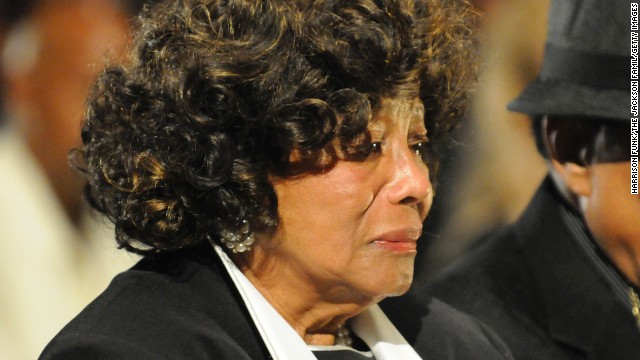 Katherine Jackson: Michael's mother, 82, was deposed for nine hours over three days by AEG Live lawyers. As the guardian of her son's three children, she is a plaintiff in the wrongful death lawsuit against the company that promoted Michael Jackson's comeback concerts.
Katherine Jackson: Michael's mother, 82, was deposed for nine hours over three days by AEG Live lawyers. As the guardian of her son's three children, she is a plaintiff in the wrongful death lawsuit against the company that promoted Michael Jackson's comeback concerts.
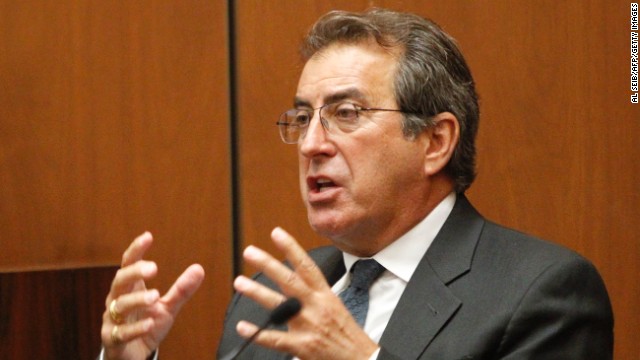 Kenny Ortega: He was chosen by Michael Jackson and AEG Live to direct and choreograph the "This Is It" shows. Ortega, who choreographed for Jackson's "Dangerous" and "HIStory" tours, testified at Dr. Conrad Murray's criminal trial that "Jackson was frail" at a rehearsal days before his death.
Kenny Ortega: He was chosen by Michael Jackson and AEG Live to direct and choreograph the "This Is It" shows. Ortega, who choreographed for Jackson's "Dangerous" and "HIStory" tours, testified at Dr. Conrad Murray's criminal trial that "Jackson was frail" at a rehearsal days before his death.
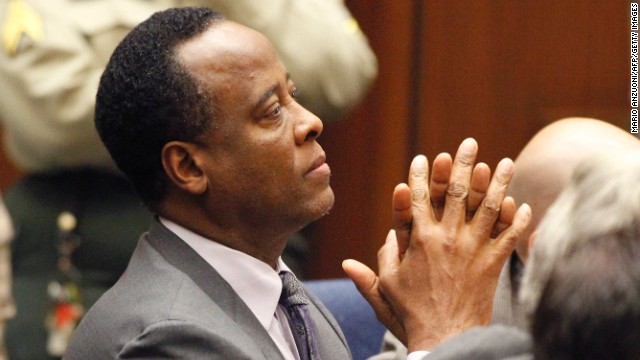 Dr. Conrad Murray: He was Michael Jackson's personal physician in the two months before his death, giving him nightly infusions of the surgical anesthetic that the coroner ruled led to his death. Murray, who is appealing his involuntary manslaughter conviction, has sworn that he would invoke his Fifth Amendment protection from self-incrimination and refused to testify in the civil trial. There is a chance that Murray will be brought into court from jail to testify outside the presence of the jury to allow the judge to determine if he would be ordered to testify.
Dr. Conrad Murray: He was Michael Jackson's personal physician in the two months before his death, giving him nightly infusions of the surgical anesthetic that the coroner ruled led to his death. Murray, who is appealing his involuntary manslaughter conviction, has sworn that he would invoke his Fifth Amendment protection from self-incrimination and refused to testify in the civil trial. There is a chance that Murray will be brought into court from jail to testify outside the presence of the jury to allow the judge to determine if he would be ordered to testify.
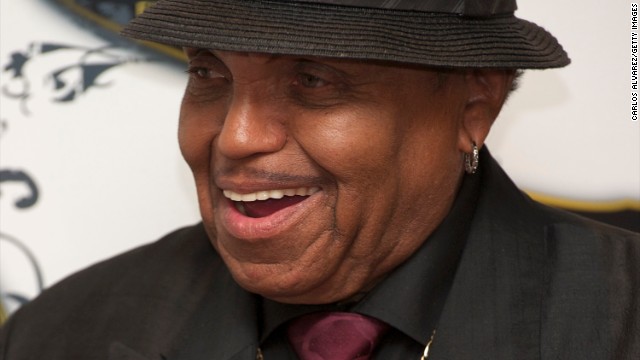 Joe Jackson: Michael's father, 84, is on the witness list for the trial and may testify. The Jackson family patriarch, who lives in Las Vegas separately from his wife, has suffered several ministrokes in the last year, which some close to him say have affected him.
Joe Jackson: Michael's father, 84, is on the witness list for the trial and may testify. The Jackson family patriarch, who lives in Las Vegas separately from his wife, has suffered several ministrokes in the last year, which some close to him say have affected him.
 Prince Jackson: Michael's oldest son is considered a key witness in the Jacksons' case against AEG Live, since he is expected to testify about what his father told him about the concert promoter in the last days of his life. Prince, who turned 16 in February, is becoming more independent -- he now has a driver's license and jobs.
Prince Jackson: Michael's oldest son is considered a key witness in the Jacksons' case against AEG Live, since he is expected to testify about what his father told him about the concert promoter in the last days of his life. Prince, who turned 16 in February, is becoming more independent -- he now has a driver's license and jobs.
 Paris Jackson: Michael's daughter, who turned 15 on April 3, is on the list of witnesses and was questioned by AEG Live lawyers for several hours on March 21 about her father's death. Paris is an outspoken teen who often posts messages to her 1 million-plus Twitter followers.
Paris Jackson: Michael's daughter, who turned 15 on April 3, is on the list of witnesses and was questioned by AEG Live lawyers for several hours on March 21 about her father's death. Paris is an outspoken teen who often posts messages to her 1 million-plus Twitter followers.
 Blanket Jackson: Although AEG Live asked the judge to order Blanket, 11, to sit for a deposition, and he is one of the four plaintiffs suing them, Michael's youngest son will not be a witness in the trial. His doctor submitted a note to the court saying it would be "medically detrimental" to the child.
Blanket Jackson: Although AEG Live asked the judge to order Blanket, 11, to sit for a deposition, and he is one of the four plaintiffs suing them, Michael's youngest son will not be a witness in the trial. His doctor submitted a note to the court saying it would be "medically detrimental" to the child.
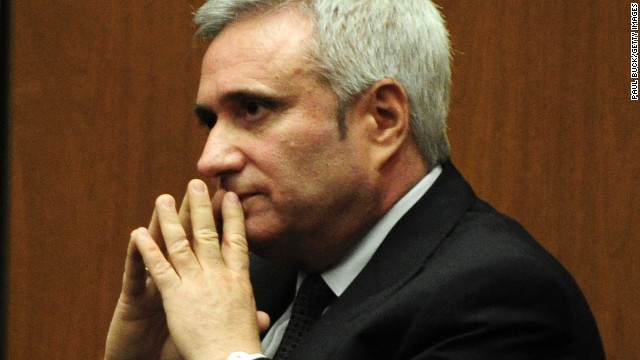 Randy Phillips: He's president of AEG Live, the concert promoter that contracted with Michael Jackson for his "This Is It" comeback shows set to start in London in July 2009. The Jackson lawsuit says Phillips supervised Dr. Conrad Murray's treatment of Jackson in the weeks before his death, making the company liable for damages. E-mails between Phillips and other executives showed they were worried about Jackson's missed rehearsals and sought Murray's help getting him ready.
Randy Phillips: He's president of AEG Live, the concert promoter that contracted with Michael Jackson for his "This Is It" comeback shows set to start in London in July 2009. The Jackson lawsuit says Phillips supervised Dr. Conrad Murray's treatment of Jackson in the weeks before his death, making the company liable for damages. E-mails between Phillips and other executives showed they were worried about Jackson's missed rehearsals and sought Murray's help getting him ready.
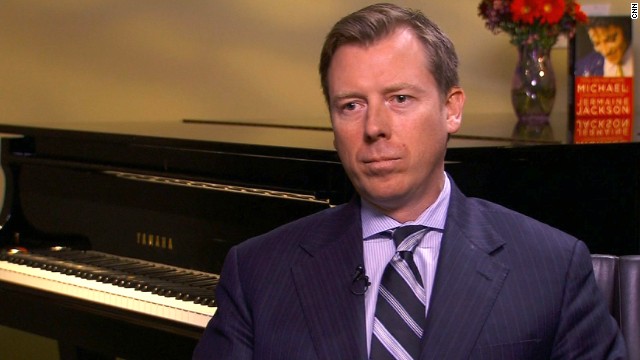 Kevin Boyle: The Los Angeles personal injury lawyer is leading the Jackson team of at least six attorneys in the wrongful death suit against AEG Live. One of his notable cases was a large settlement with Boeing on behalf of two soldiers injured when their helicopter malfunctioned and crashed in Iraq.
Kevin Boyle: The Los Angeles personal injury lawyer is leading the Jackson team of at least six attorneys in the wrongful death suit against AEG Live. One of his notable cases was a large settlement with Boeing on behalf of two soldiers injured when their helicopter malfunctioned and crashed in Iraq.
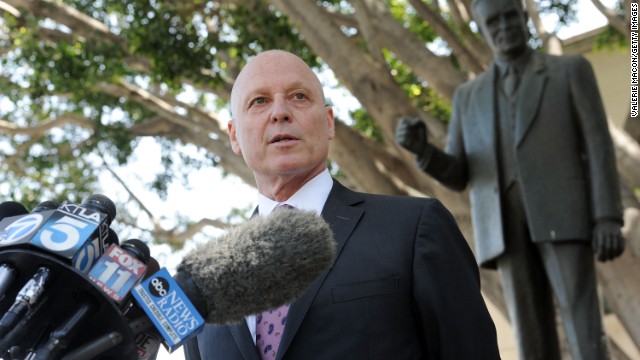 Perry Sanders, Jr.: Katherine Jackson's personal lawyer is helping steer the Jackson matriarch through her relations with her son's estate, probate court and the wrongful death suit. He is also known for representing the family of Biggie Smalls in their suit against the city of Los Angeles over the rapper's death investigation.
Perry Sanders, Jr.: Katherine Jackson's personal lawyer is helping steer the Jackson matriarch through her relations with her son's estate, probate court and the wrongful death suit. He is also known for representing the family of Biggie Smalls in their suit against the city of Los Angeles over the rapper's death investigation.
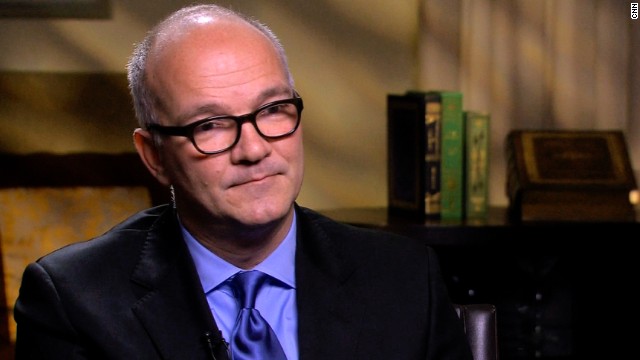 Marvin Putnam: He's the lead lawyer for AEG Live, defending against the wrongful death suit. The primary focus of his legal practice is "media in defense of their First Amendment rights," according to his official biography.
Marvin Putnam: He's the lead lawyer for AEG Live, defending against the wrongful death suit. The primary focus of his legal practice is "media in defense of their First Amendment rights," according to his official biography.
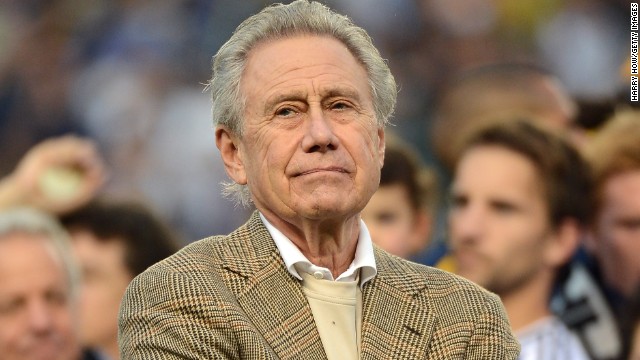 Philip Anschutz: The billionaire owner of AEG, parent company of AEG Live, is on the Jacksons' witness list. He is the force behind the effort to build a football stadium in downtown Los Angeles to lure a National Football League team to the city. He recently pulled his company off the market after trying to sell it for $8 billion.
Philip Anschutz: The billionaire owner of AEG, parent company of AEG Live, is on the Jacksons' witness list. He is the force behind the effort to build a football stadium in downtown Los Angeles to lure a National Football League team to the city. He recently pulled his company off the market after trying to sell it for $8 billion.
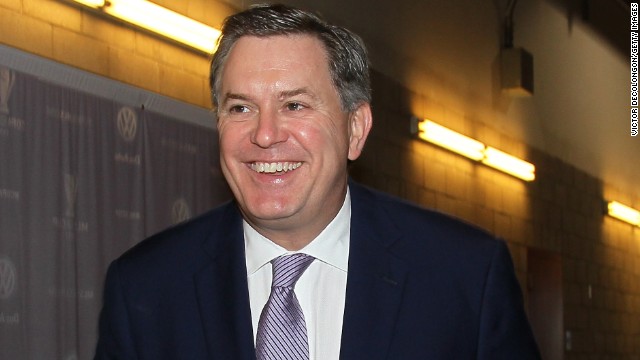 Tim Leiweke: He was recently fired as AEG's president as Philip Anschutz announced he was taking a more active role in the company. The Jackson lawyers say Leiweke's e-mail exchanges with executives under him concerning Michael Jackson's health are important evidence in their case.
Tim Leiweke: He was recently fired as AEG's president as Philip Anschutz announced he was taking a more active role in the company. The Jackson lawyers say Leiweke's e-mail exchanges with executives under him concerning Michael Jackson's health are important evidence in their case.
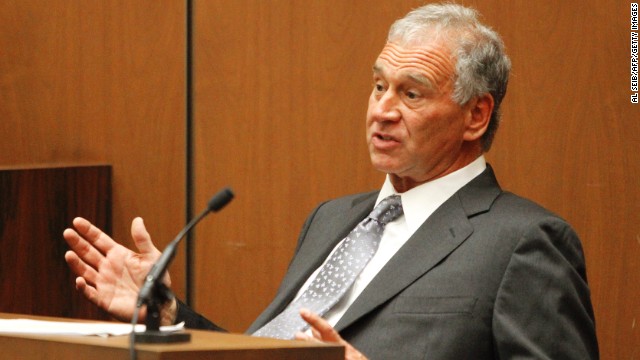 Paul Gongaware: The AEG Live co-CEO worked closely with Michael Jackson as he prepared for his comeback concerts. He testified at Dr. Conrad Murray's criminal trial that he contacted the physician and negotiated his hiring at the request of Jackson. AEG lawyers say it was Jackson who chose, hired and supervised Murray. Gongaware knew Jackson well, having been tour manager for the singer in previous years.
Paul Gongaware: The AEG Live co-CEO worked closely with Michael Jackson as he prepared for his comeback concerts. He testified at Dr. Conrad Murray's criminal trial that he contacted the physician and negotiated his hiring at the request of Jackson. AEG lawyers say it was Jackson who chose, hired and supervised Murray. Gongaware knew Jackson well, having been tour manager for the singer in previous years.
 John Branca: He's one of two executors of Michael Jackson's estate. Branca was Jackson's lawyer until about seven years before his death. He said Jackson rehired him just weeks before he died.
John Branca: He's one of two executors of Michael Jackson's estate. Branca was Jackson's lawyer until about seven years before his death. He said Jackson rehired him just weeks before he died.
 Who's who in Jackson trial
Who's who in Jackson trial
 MIchael Jackson's ex-wife cries on stand
MIchael Jackson's ex-wife cries on stand
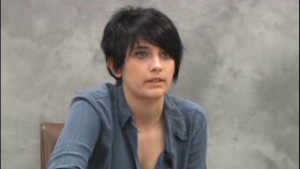 Paris Jackson's deposition
Paris Jackson's deposition
 Prince Jackson testifies against AEG
Prince Jackson testifies against AEG
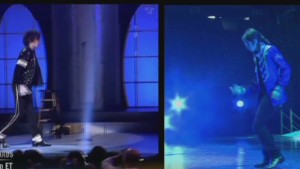 Compare Michael Jackson in 2001 to 2009
Compare Michael Jackson in 2001 to 2009
Dr. Barney Van Valin, whose video testimony was shown to jurors Friday, refused Jackson's request for propofol infusions in 2003, but six years later -- in Dr. Van Valin's words -- another physician "put him to sleep like a dog."
Jackson's mother and three children contend AEG Live is liable for his death because the company hired, retained or supervised Dr. Conrad Murray, who was convicted of involuntary manslaughter for Jackson's propofol overdose. Murray told investigators he gave Jackson nightly infusions of the drug to treat his insomnia the last two months of his life.
AEG Live lawyers argue Jackson, not their executives, chose and controlled Murray and that the company had no way of knowing about the dangerous treatments in the privacy of the singer's bedroom.
The producers ignored warning signs that Jackson's health was deteriorating, and instead of finding another doctor to intervene, they kept Murray and made him responsible for getting Jackson to rehearsals for his comeback concerts, the Jacksons contend.
MJ and doctor were "best friends"
Dr. Van Valin's practice is near the Neverland Ranch in Santa Barbara County, California, where Jackson lived until his acquittal in a child molestation trial in 2005.
"We were best friends, you know," Dr. Van Valin testified. "I didn't have a better friend and I don't think he did."
Jackson "would just show up" at Van Valin's home every week or so without warning, he said. The doctor would open his door to leave for work in the morning "and he would just be standing there."
His driver told him once that Jackson had been waiting at his door for 35 minutes, not wanting to knock because he thought that was impolite.
Van Valin's children would stay home from school some days Jackson visited.
"I'd come home from work and there's Michael there at the house and they're watching cartoons or, you know, eating pizza," Van Valin said. At first it was a novelty, but after several years it was routine, he said.
The doctor was asked under cross examination if Michael Jackson a good father.
"No, he is an amazing father," he answered. "Because I'm a good father and he was better than me. He respected them and as they respected him and he would correct them gently."
Doctor: Jackson didn't fake pain to get drugs
AEG Live's defense includes the contention that Jackson cultivated friendships with doctors to gain access to drugs to feed a secretive addiction. But Van Valin denied Jackson ever used their friendship to get prescriptions to medication that were not clinically indicated.
Although he was compelled to testify as a witness for AEG Live, Van Valin's testimony boosted the Jackson case by showing that Jackson's use of painkillers was medically justified by chronic pain suffered in a 1997 stage accident, Jackson lawyers said.
The doctor said Jackson showed the "classic symptoms of lower back pain" and an MRI study confirmed a bulge in a disc in his lower spine consistent with where his pain was.
Dr. Van Valin said he never suspected Jackson was faking his pain to get painkiller shots.
"I looked for that because there are plenty of people that come in and try to scam me, so I'm always looking for that," he testified.
While the doctor said "nothing implied" that Jackson was abusing painkillers, there was one incident during house call in 2002 that caused him to suspect Jackson might be getting additional shots of the powerful opioid Demerol from another doctor. He noticed "a little blood spot" on Jackson's T-shirt after he gave him a shot, he said.
"I lifted it up and there's a little Band-Aid over it and I said, 'Michael,' I said, 'you have another doctor that gave you a shot.' I said, 'You realize what risk you put yourself and me at by doing that? Who came and gave you a shot?' 'Oh, no, I didn't -- it was not a shot.'" Van Valin said. "But it was. He was lying."
AEG Live contends Jackson kept doctors in the dark about other doctors' treatments. The argument is important to their contention that his dangerous drug use would have shortened his life even if he had not died in 2009. The shorter his life expectancy, the less money they might be ordered to pay in damages if found liable in his death.
"I told him, I said, 'You know what, I can't do this, okay, 'cause if you're doubling up, you know, I give you a shot and then you've already had one,' I said, 'I could kill you,'" Van Valin testified.
Van Valin remained close friends with Jackson even though he stopped treating him soon after that incident, he said.
Bedtime stories versus Diprivan
The doctor's testimony revealed more about Jackson's relationship with the drug that killed him -- the surgical anesthetic propofol, also known as Diprivan. AEG Live lawyers contend it was a drug Jackson knew a lot about, but that their executives had no knowledge of.
Debbie Rowe, Jackson's former wife, testified earlier that German doctors infused the singer with it in a Munich hotel on two nights to help him sleep between "HIStory" tour shows in 1997. Jackson lawyers pointed out that Paul Gongaware, who is now the AEG Live co-CEO, was Jackson's tour manager then.
Five years later, Jackson asked Van Valin to help him go to sleep.
"Sometimes, he'd say, 'Barney, do me a favor, see if I can sleep, I'm going to get under the covers on that rollout couch,' and he said, 'Just read me out of a book,'" Van Valin testified. "I'd find a book that looked interesting and I'd just start reading or I'd tell him stories. That didn't work because often times he got excited about the story and say, 'That really happened?' or something. Anyway, I'd read to him -- and when it seemed like he was asleep I'd slip out, you know, kind of hard because the door made a little noise. If I thought he was asleep I'd leave, and once in awhile he'd say, 'Good night, Barney,' and when I got to the door, he wasn't asleep at all."
Dr. Van Valin also tried to help Jackson sleep with sedatives, including Xanax, without success, he said.
Jackson, however, revealed to him in 2003 that he had a stash of propofol in a closet of his Neverland Ranch bedroom, Van Valin said.
"He said, 'Would you put me to sleep, I haven't been able to sleep for four days,' and I said, 'With what?' And he goes, 'Well, I have this stuff,' and I said, 'Mike, I don't do I.V. sedation. You need an anesthesiologist to do that.' And he said, 'Oh, it's safe, man, I used it for all those years between shows and I got put to sleep.' I said, 'I can't imagine that was good sleep." You know, he said, "No, it works really well."
He said Jackson told him that during his world tours him a doctor "would put in the I.V. and put me to sleep, and he'd stay there for eight hours and wake me up 'cause I would go -- if I had three days between shows, I would have three days I didn't sleep and, you know, that I couldn't put on the show I wanted to have, you know, I mean, I want my shows to be, you know, as high end as possible."
"Sounds like a doctor who did his job, not like this other guy, who just started the drip and left the room and basically put him to sleep like a dog," Van Valin said.
Jackson was "pretty complacent" when he rejected his request for help with propofol and he never asked for it again, Van Valin said.
Dr. Conrad Murray told CNN's Anderson Cooper in April that Jackson had "his own stash" of propofol in his home before he began treating him with it in 2009.
"I did not agree with Michael, but Michael felt that it was not an issue because he had been exposed to it for years and he knew exactly how things worked," Murray said. "And given the situation at the time, it was my approach to try to get him off of it, but Michael Jackson was not the kind of person you can just say 'Put it down' and he's going to do that."
Jackson lawyers argue that AEG Live was negligent for not checking out Murray's distressed financial situation before agreeing to pay him $150,000 a month. It created a conflict of interest that led Murray to ignore safe practices and his responsibility to Jackson's health, they contend.














